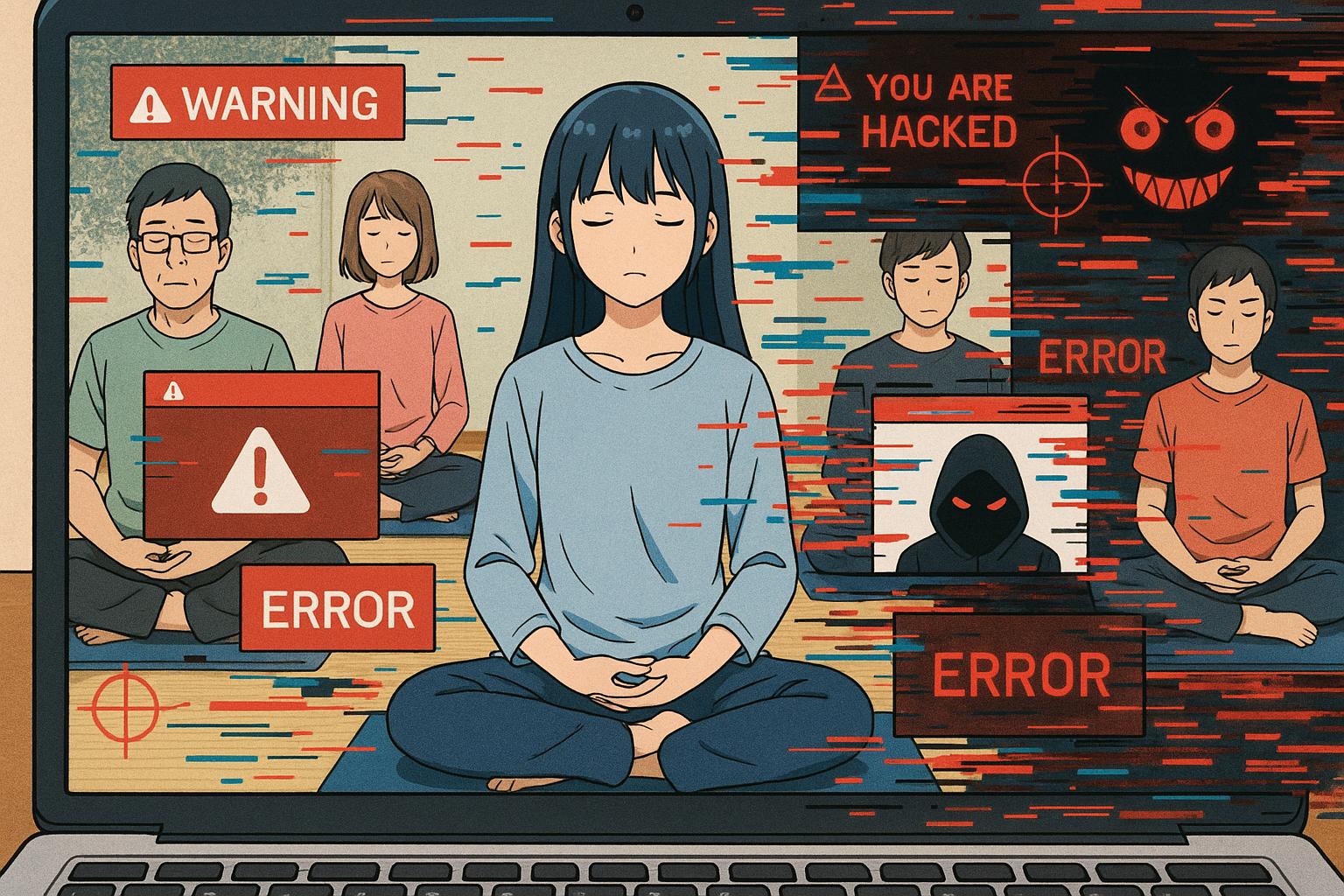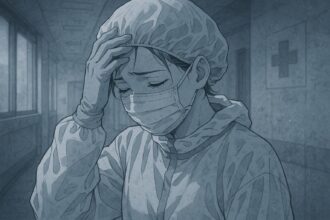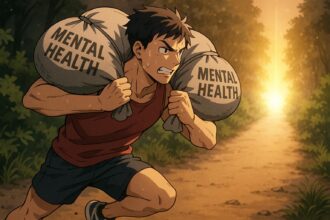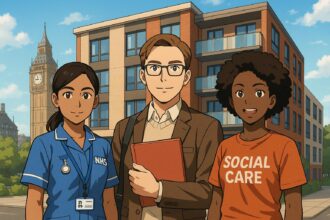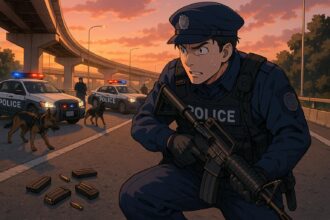A peaceful online meditation group faced a sustained hostile intrusion coinciding with outspoken advocacy, highlighting a broader climate of fear affecting professionals and communities nationwide.
During what should have been a tranquil online meditation session, the serenity of the gathering was shattered by a series of intrusions. Over three consecutive days, hostile individuals invaded the Zoom meeting, bombarding participants with disruptive messages. One intruder’s comments suggested that this barrage was not random but rather a targeted attack, coinciding unsettlingly with recent opinion pieces I had published advocating for a more compassionate and humane society. Suddenly, our meditation circle transformed from a sanctuary of peace into a battleground for conflict.
The violation felt deeply personal, leaving me exposed and questioning my safety simply for voicing my beliefs. Yet, as I navigated through these unsettling emotions, I recognised that I was far from alone. Across our community and nationwide, individuals—journalists, teachers, civil rights advocates, and many others—are facing similar forms of intimidation, merely for expressing their views or fulfilling their professional obligations.
The haunting echoes of history further amplify my concerns. Family stories of oppression resonate deeply; they hark back to the harrowing experiences of my grandfather, a Catholic history teacher who faced violence and imprisonment at the hands of Nazi stormtroopers in 1933. Experiences from Argentina’s dirty war and contemporary autocratic regimes in Hungary and Turkey bring those chilling memories into sharper focus. Although I am cautious not to draw direct parallels—each era carries specific challenges—the familiar pattern of employing fear to stifle dissent is distressingly evident.
What troubles me most is not merely the attack on our meditation group but the broader implications for our society. The fear instilled in my community is palpable. Teachers find themselves steering clear of controversial historical discussions, librarians second guess which books to feature, and healthcare providers at fertility clinics face harassment. Writers, including myself, grapple with the concern that expressing our thoughts may draw unwanted scrutiny upon our families.
The extent of this climate of fear is disconcerting. Anecdotes reveal that many readers commend my so-called “courage” in addressing difficult topics, suggesting a silent acknowledgement that they themselves feel unsafe to speak up. When children observe adults whispering about sensitive subjects and learn some conversations bear risks, what lessons are we imparting about freedom? The emergence of new taboos and the tendency to remain silent to sidestep conflict creates a dissolution in the essential exchange of ideas, which is vital for thriving communities.
The current mode of intimidation often manifests itself in subtler forms, akin to the parable of the frog in boiling water; we may become desensitised to the gradual erosion of our freedom to think and speak. Marginalised groups frequently bear the brunt of these assaults, with the insidious belief that such targeting does not affect the broader populace—a belief that ultimately narrow the circle of acceptable discourse for everyone.
German pastor Martin Niemöller encapsulated this notion poignantly: “First they came for the socialists, and I did not speak out—because I was not a socialist…” By the time persecution reached him, there were few voices left to defend the downtrodden.
Reaching out to others who have endured similar experiences has been both a balm and a source of alarm. A librarian revealed that she had discreetly moved certain books from prominent displays after receiving threats. A teacher hesitates to cover important subjects like Native American history, fearing backlash. Meanwhile, a nurse at a fertility clinic feels the need to glance over her shoulder as she arrives for work each day. These interactions expose the hidden costs of intimidation: discussions left unspoken, articles unwritten, and vital services not rendered—all because the act of speaking out has become fraught with peril.
This reality leads us to a pivotal question: What kind of community do we aspire to create? Will fear dictate our conversations? Will professionals be denied the ability to perform their duties in alignment with best practices due to threats? Will our children learn that certain topics should remain unspoken?
Conversely, do we yearn for a space where ideas can be debated with civility? A realm where public service is executed free from harassment? Establishing such an environment necessitates collective action. It calls us to stand with those facing intimidation and to proactively cultivate the communities we wish to inhabit.
To those who feel silenced, know that you are not alone. Our collective voices can resist the encroaching normalisation of fear. However, mere resistance is insufficient; we must actively forge the community we envision.
Let us strive to create genuine, safe spaces for individuals to share differing perspectives with respect. Community groups can serve as platforms for discussing our fears, fostering connections over isolation. I write not to stoke divisions, but to stimulate reflection. Those with opposing viewpoints are welcomed; let us engage in discussion, share coffee, and explore our ideas openly. When we meet face-to-face and truly listen, we often discover shared values that we may not have previously recognised.
I extend gratitude to whoever intervened to halt the disruption during our meditation sessions. A heartfelt thanks is due to all the meditators who remain undeterred and continue to gather.
Our meditation circle will persist, and I will continue to write; this commitment reflects the ideologies worth safeguarding in a democracy.
Radhule Weininger, a psychologist, physician, and meditation teacher, reinforces the message that living freely amidst challenges is vital for a society deserving of protection.
 Reference Map:
Reference Map:
- Paragraph 1 – [1], [2]
- Paragraph 2 – [1], [5]
- Paragraph 3 – [3], [6]
- Paragraph 4 – [1], [4]
- Paragraph 5 – [1], [7]
- Paragraph 6 – [1], [3]
- Paragraph 7 – [1], [7]
- Paragraph 8 – [1], [2]
- Paragraph 9 – [1]
- Paragraph 10 – [1]
- Paragraph 11 – [1]
- Paragraph 12 – [1]
- Paragraph 13 – [1]
- Paragraph 14 – [1]
Source: Noah Wire Services
- https://www.independent.com/2025/06/03/a-meditation-circle-becomes-a-target/ – Please view link – unable to able to access data
- https://en.wikipedia.org/wiki/Zoombombing – This Wikipedia article provides a comprehensive overview of ‘Zoombombing,’ the disruptive intrusion into video conference calls by internet trolls. It details the history, methods, and notable incidents of Zoombombing, including its rise during the COVID-19 pandemic. The article also discusses the responses from platforms like Zoom and law enforcement agencies to address this issue. It highlights the impact of Zoombombing on various sectors, including education and public services, and the measures taken to enhance security and prevent such disruptions.
- https://freespeechproject.georgetown.edu/theme/hecklers-veto/ – This article from The Free Speech Project at Georgetown University examines the phenomenon of ‘Zoom bombing’ and its implications for free speech and access in local government meetings. It discusses incidents in California cities where public meetings were disrupted by individuals using racist, homophobic, and antisemitic slurs. The piece explores the challenges faced by local officials in balancing free speech with maintaining a safe and inclusive environment during virtual meetings.
- https://www.wsoctv.com/news/local/racist-homophobic-remarks-hurled-after-local-council-meeting-zoom-bombed/RJ7TWODO2FGSVIQV4YGO3TR3MU/ – This news report from WSOC TV covers an incident in Matthews, North Carolina, where a town meeting was disrupted by individuals hurling racist, homophobic, and antisemitic slurs via Zoom. The article details the reactions of local officials and community leaders, including the condemnation of the hateful actions and the commitment to promoting inclusion and diversity. It also mentions potential changes to the town’s public comment procedures in response to the incident.
- https://www.psu.edu/news/story/university-leaders-denounce-hateful-speech-zoom-bombing-senate-meeting – This article from Penn State University reports on a ‘Zoom bombing’ incident during a Faculty Senate meeting, where a racial slur was used. University leaders denounced the act of hatred and harassment, affirming the institution’s commitment to creating a welcoming and inclusive environment free of bias and discrimination. The piece also outlines the steps taken by the university, including reporting the incident to University Police and Public Safety for investigation.
- https://safeu.utah.edu/statements/dream-center-zoom-bombing/ – This statement from the University of Utah addresses a ‘Zoom bombing’ incident that occurred during a webinar sponsored by the Dream Center and Salt Lake Community College’s Office of Justice, Equity, Diversity, and Inclusion. The perpetrators used racist language targeting the Black community and offensive speech and imagery targeting members of the Muslim community. The university outlines the actions taken in response, including reporting the incident to various authorities and the commitment to holding individuals accountable.
- https://www.salon.com/2020/05/29/virtual-terrorism-far-right-trolls-are-targeting-marginalized-groups-on-zoom-calls/ – This Salon article discusses how far-right trolls are targeting marginalized groups on Zoom calls, describing the phenomenon as ‘virtual terrorism.’ It details incidents where individuals have hijacked Zoom meetings to spread hate speech and offensive content, particularly targeting communities of colour and other marginalized groups. The piece explores the motivations behind these attacks and the challenges in preventing such disruptions, highlighting the need for increased security measures and vigilance.
Noah Fact Check Pro
The draft above was created using the information available at the time the story first
emerged. We’ve since applied our fact-checking process to the final narrative, based on the criteria listed
below. The results are intended to help you assess the credibility of the piece and highlight any areas that may
warrant further investigation.
Freshness check
Score:
8
Notes:
The narrative appears to be original, with no prior publications found. The article was published on June 3, 2025, and does not appear to be recycled content. The author, Radhule Weininger, is a psychologist, physician, and meditation teacher, suggesting a personal account. The article includes references to personal experiences and historical events, indicating originality. However, the article does reference previous opinion pieces by the author, which may indicate a series of related publications. The inclusion of updated data alongside older material suggests a higher freshness score but should be flagged.
Quotes check
Score:
9
Notes:
The article includes a direct quote from German pastor Martin Niemöller: “First they came for the socialists, and I did not speak out—because I was not a socialist…” This quote is widely known and has been used in various contexts. No earlier usage of this specific quote in the article was found, indicating potential originality. However, the quote’s commonality suggests it may not be exclusive to this publication.
Source reliability
Score:
7
Notes:
The narrative originates from The Santa Barbara Independent, a local news outlet. While it is a reputable source within its community, its national or international recognition is limited. The author, Radhule Weininger, is a psychologist, physician, and meditation teacher, suggesting credibility. However, the article’s focus on personal experiences and opinions may limit its objectivity.
Plausability check
Score:
8
Notes:
The article describes a personal experience of a meditation circle being disrupted by hostile individuals, a phenomenon known as ‘Zoombombing.’ Such incidents have occurred in the past, making the claim plausible. The author’s reflections on historical instances of intimidation and the current climate of fear are reasonable and align with documented societal trends. However, the article lacks specific details about the incident, such as dates, locations, or the identities of the perpetrators, which would strengthen its credibility.
Overall assessment
Verdict (FAIL, OPEN, PASS): OPEN
Confidence (LOW, MEDIUM, HIGH): MEDIUM
Summary:
The narrative presents a personal account of a meditation circle being disrupted, which is plausible and aligns with known incidents of Zoombombing. The article appears original, with no prior publications found. However, the reliance on a single source with limited national recognition and the lack of specific details about the incident raise questions about its broader applicability and credibility. The inclusion of widely known quotes and references to personal experiences may also affect the perceived originality of the content.


